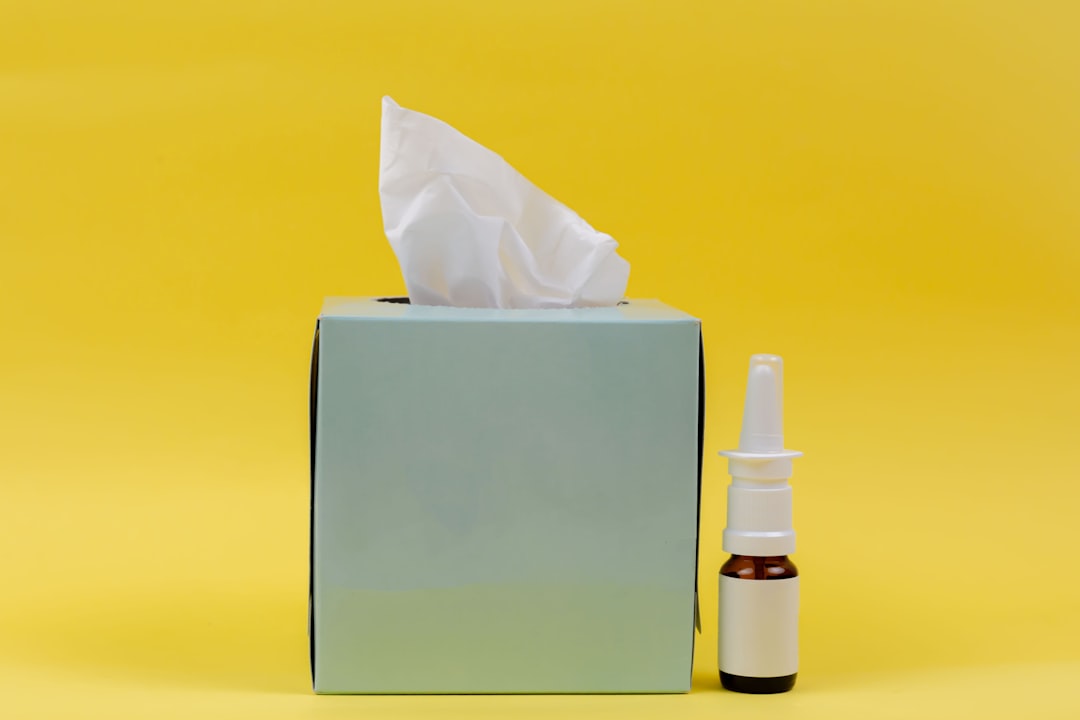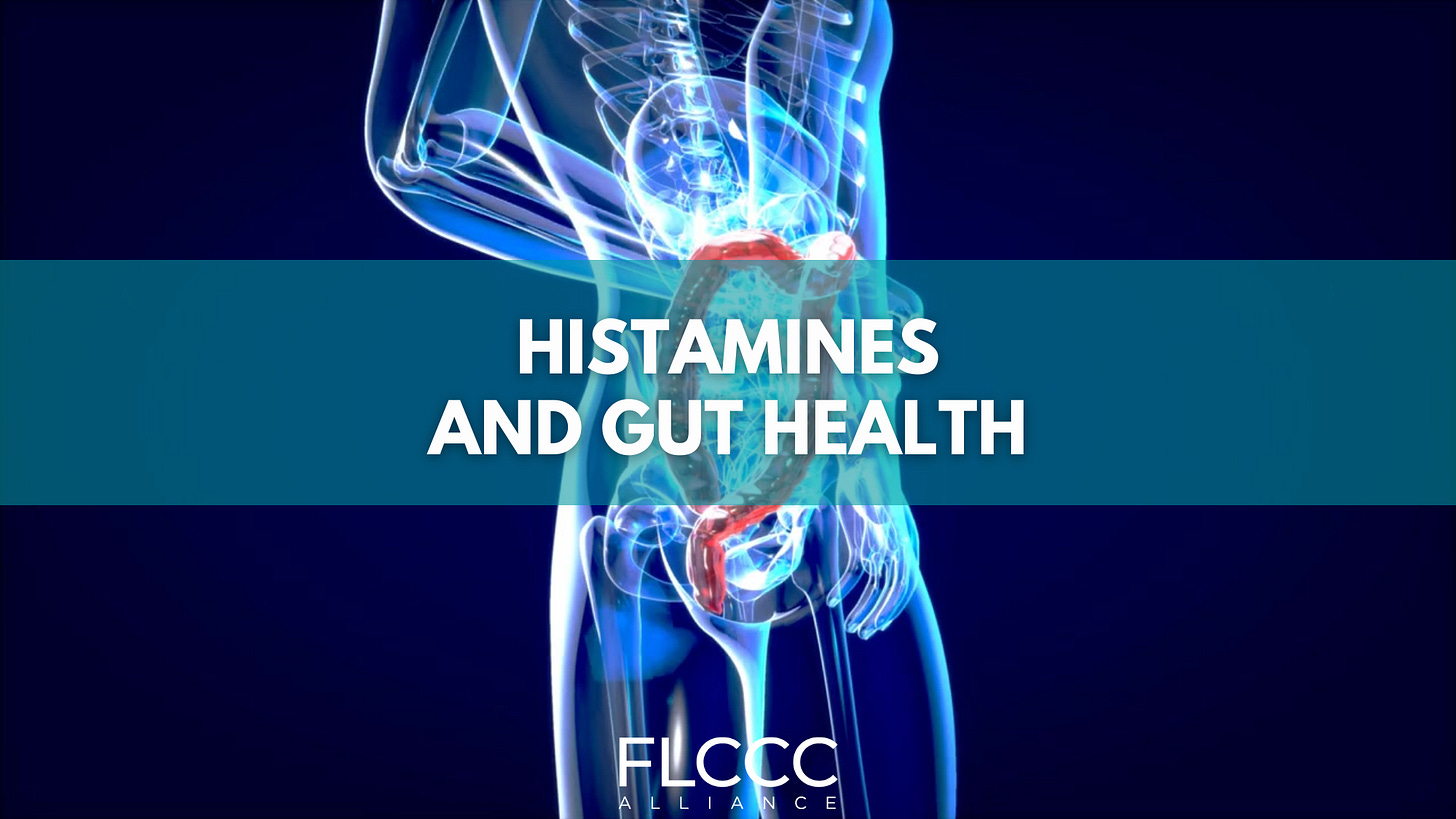Eat your way to allergy relief
A low-histamine diet could be the key to relieving allergy symptoms
Our beloved Betsy Ashton, hostess extraordinaire of the weekly FLCCC webinar, was having some allergy issues recently that made her look like she’d been crying her eyes out. The amazing FLCCC army chimed in with lots of good advice, including a suggestion to follow a low-histamine diet.
So, what exactly does that mean, and how do you go about it following it?
First of all, what are histamines? They’re chemicals in our immune system that tell the body’s defense system to get rid of things like allergens. Some foods have high levels of histamines or can trigger your body to release them. These include things like sauerkraut and other fermented foods, alcohol, processed meat, aged cheese, certain types of fish and shellfish, and nightshade vegetables like tomato and eggplant.
A low-histamine diet reduces the number of foods that can create those pesky allergic reactions. Give it about 30 days to see the best results.
Here are some general principles to follow in pursuing a low-histamine diet.
Fresh is best. The histamine content increases as food ages or spoils. Therefore, make sure your food – especially meat and fish – is very fresh or was frozen while fresh. Avoid eating leftovers.
Avoid fermented foods. While fermented foods are good for gut health, they also have high levels of histamines.
Avoid artificial coloring and preservatives. This is good dietary advice at the best of times but if you’re having allergies, stay away from additives, dyes, and preservatives such as benzoates and sulfites, which can trigger the release of histamines.
Stay away from the slow cooker and the barbecue. Boiling or pressure cooking (Instapot) is good, while slow cooking, frying, or grilling can increase histamine levels.
Eat your quercetin! Quercetin is a natural flavonoid found in many foods and is thought to help reduce the release of histamines. Foods containing quercetin include leafy vegetables, broccoli, red onions, peppers, apples, grapes, black tea, green tea, and red wine.
Here’s a little twist, too… Try to relax. Reducing stress may not seem like an allergy treatment, but stress can make the body release substances that cause allergic reactions. Stress reduction like yoga, meditation, or deep breathing techniques can help manage symptoms. L-Theanine, an amino acid found in tea leaves, has also been studied for its potential to promote relaxation and reduce stress without causing drowsiness.
Here are some supplements that can also be considered:
Vitamin C: Can help degrade histamines and stabilize mast cells.
Probiotics: Certain strains (Bifidobacterium infantis and Lactobacillus plantarum) may help break down histamines in the gut.
Bromelain and N-acetylcysteine (NAC): May help break down and remove histamines from the body.
EGCG (Epigallocatechin gallate): A type of catechin found in green tea that research suggests might have the potential to stabilize mast cells and prevent them from releasing histamines. However, most of this research has been conducted in laboratory settings, and it's not yet clear how well these effects translate to humans.
Curcumin: The main active component of turmeric; can inhibit the release of histamines from mast cells. Also an anti-inflammatory.
Omega-3 fatty acids: Anti-inflammatory and good for overall immune health.
Stinging nettle: Traditionally used for allergies and may help with histamine-related symptoms.
DAO: Diamine oxidase is the main enzyme responsible for breaking down ingested histamines. Supplementation could help reduce symptoms but should be combined with a low-histamine diet.
Palmitoylethanolamide (PEA): A fatty acid found naturally in foods like egg yolks and peanuts. Dietary supplementation can help with chronic inflammation, pain, and certain allergic conditions.






Sadly, we are obliged to be following a low histamine diet currently for an issue with one of our family members. I say sadly because a low histamine diet has eliminated a lot of foods available to us and has made food preparation very complicated. We already ate a pretty clean low carb diet. But this is orders of magnitude more difficult.
It absolutely can be helpful. But it is no walk in the park. I am always weighing - will these leftovers get eaten tomorrow, or should I freeze them? I used to live with leftovers - cook once and eat for a couple of days. Now, that convenience is gone. It is maddeningly inconvenient in many other respects as well, as the diet is not so simple as what is written above, unfortunately. It truly is tedious.
I highly recommend looking at gut microbiome, as it seems this underlies a lot of histamine intolerance. Seeking Health has a Histamin-X probiotic blend specifically for this condition. Many common probiotics included in ordinary blends at the store have strains (especially certain lactobacilli) that actually INCREASE histamine, so need to be aware of that when selecting a probiotic.
Thanks for bringing attention to this usually unknown phenomenon.
I suffered for 5 years with chronic hives. I now eat a low histamine diet & went gluten free. I eat celery & an apple for my quercetin. I added Vitamin C & D. I haven't had any hives for over 8 months now. There were times I was taking 4 Allegra a day just to keep the itching down. I also discovered that I get angioedema around my eyes from carrageenan , a sea weed used as a binder. I am living proof that low histamine diet does help with allergies!! Bless my hubby for eating this way too!